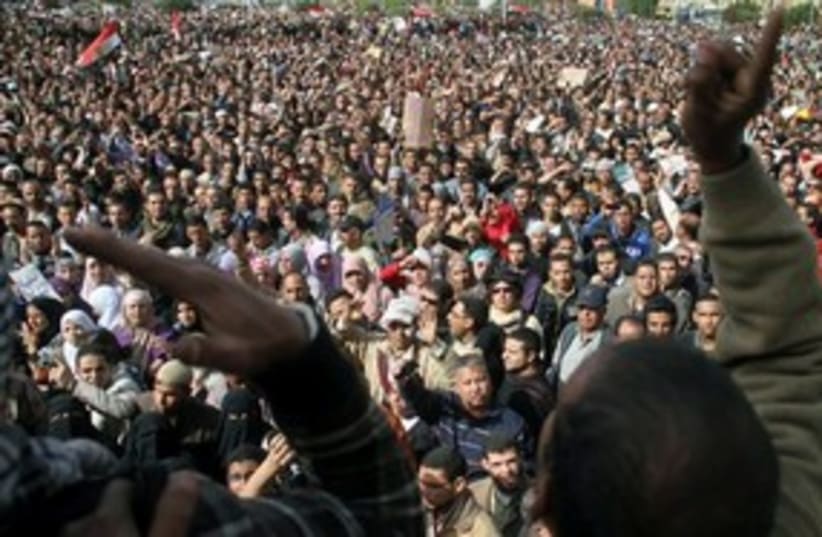Anti-Mubarak protesters throng Cairo's Tahrir Square
Egyptians demand president's ouster on "Day of leaving"; ElBaradei calls for year-long transition to democracy; Arab League chief Amr Moussa appears in square to chants, "we want you as president."
